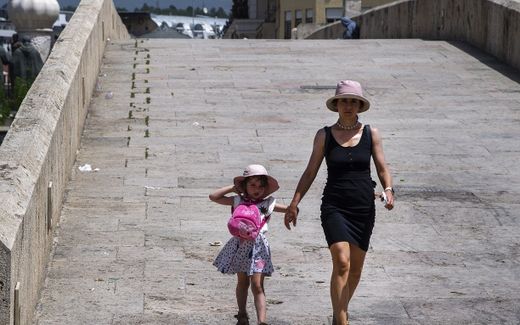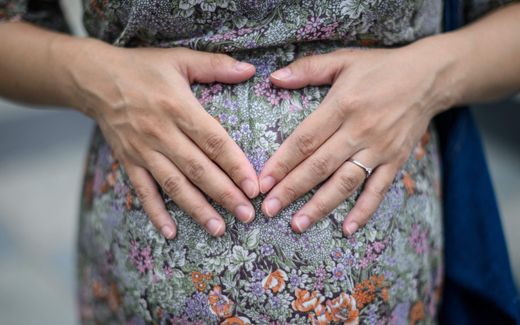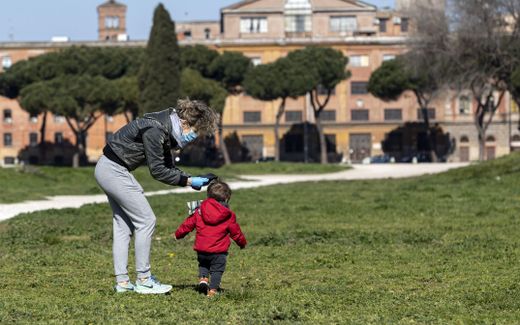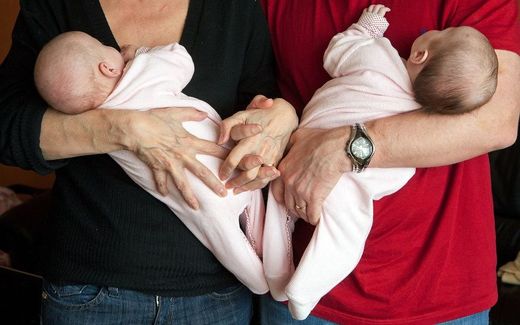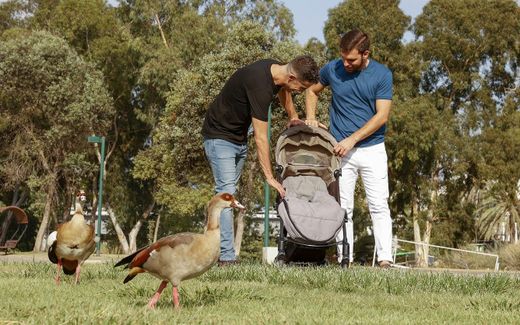Why Giorgia Meloni fights for the family

Italian Prime Minister Giorgia Meloni delivers a speech during a two-day "General States of Birth" conference in Rome on May 12, 2023. Photo AFP, Filippo Monteforte
Southern Europe
In a new move to defend traditional family values, the Italian authorities removed lesbian mothers from birth certificates on Friday. Why is the family so important to Prime Minister Meloni?
Only biological parents should appear on a birth certificate. That is the strong conviction of the public prosecutor of the northern Italian city of Padua. Therefore, on Friday, the city started removing names of non-biological lesbian mothers from birth certificates. These women must now initiate legal proceedings to adopt the child of their partner.
The government's move caused worldwide media attention that focused mainly on the consequences for the affected parents. Little attention was paid to the children, for whom a birth certificate is the only way to know one's origins officially.
The centre-left city council came to power in 2017, promising to amend traditional birth certificates. Instead of ‘father’ and ‘mother’, ‘parent 1’ and ‘parent 2’ would appear on the certificate. However, the Meloni government corrected the municipal council six years after introducing this policy. It did the same earlier this year in Milan, which, like Padua, had a similar procedure. Like surrogacy, gay marriage has not been legalised in Italy. Therefore, gay couples must choose who is registered as a legal father or mother.
Effectively, this measure means that these now unauthorised parents, some of whose children are now six years old, will have to ask permission to pick up children from school, for example, or use public transport with them.
While conservatives welcome the measure, various media outlets are critical of the policy. They see it as yet another curb to LGBT people. They say Meloni is on a “crusade to protect the traditional family.” However, for Giorgia Meloni, family values indeed seem important; she won an election with them.
Dangerous
With the slogan “Dio, patria, famiglia” (God, fatherland, family), 45-year-old Meloni won the Italian elections last year. During the campaign, the Catholic woman called for preserving Italy’s Christian identity, the traditional family and a country populated primarily by Italian patriots. Reason for the German left-liberal magazine Stern to present Meloni on its front page as “the most dangerous woman in Europe.”
In Meloni’s struggle to preserve the traditional family, surrogacy plays an important role. The growing industry is boosted by various celebrities who recently got a child through the practice. The industry was worth an estimated $14 billion in 2022. It may reach $129 billion by 2032, according to the research and consulting company Global Market Insights.
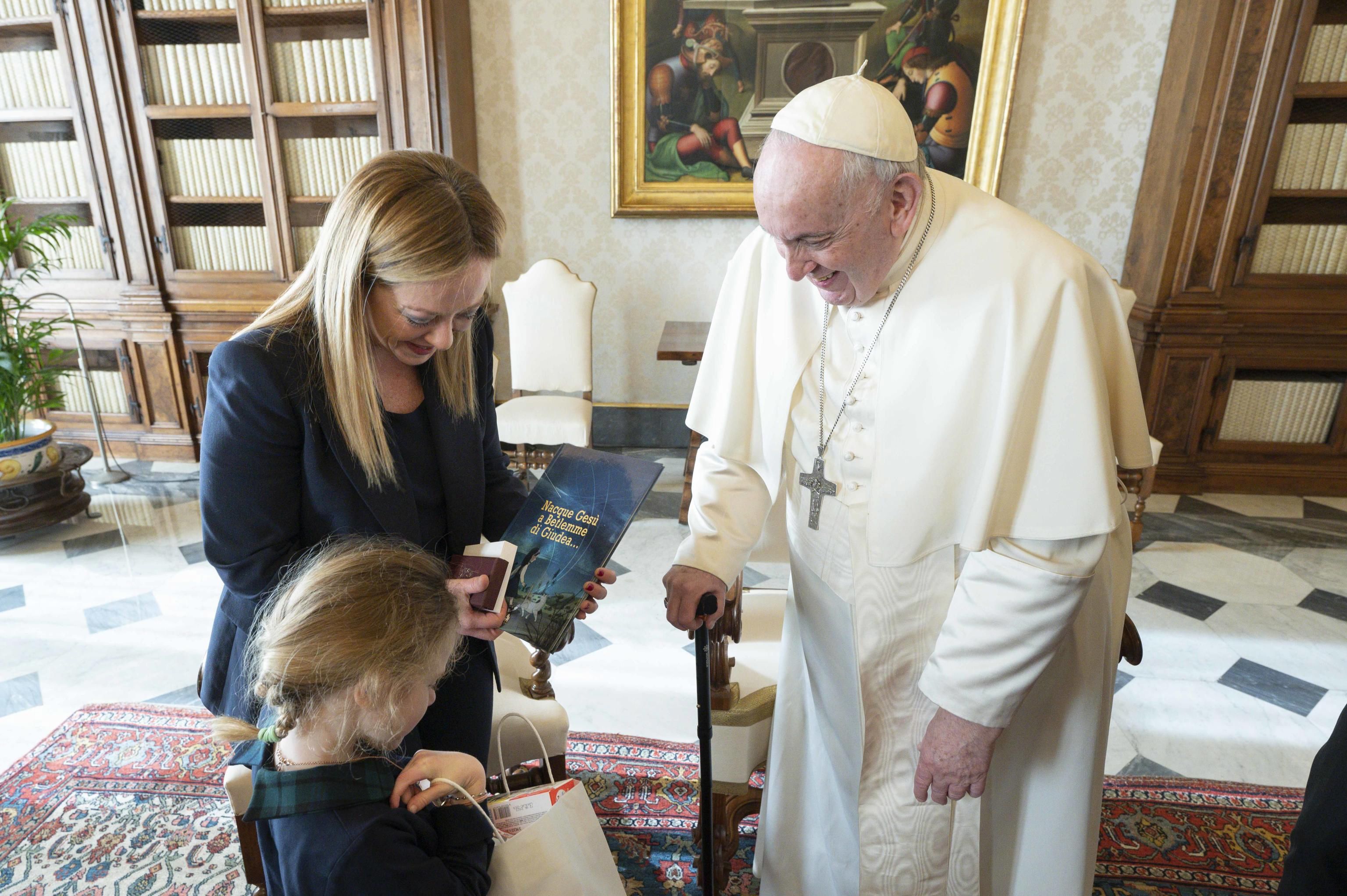
However, back in 2021, Meloni already called the practice “an abomination that seeks to reduce human life to a bargaining chip.” While Italy already prohibits carrying a child for another person, parliament is now working on a bill to make surrogacy a “universal crime”. Many countries that ban surrogacy at home cannot stop citizens from obtaining a child by going abroad. But the Italian government wants to take measures against this anyway: people risk fines of up to one million euros and prison sentences of up to two years.
However, that is not the only anti-surrogacy measure authorities in Italy are taking. In June, the government of the Lazio region, which includes Rome, revoked its support for the LGBT Pride Parade. Because the organisation favoured surrogacy, the regional governor stopped supporting the parade, saying he did not want to support illegal activities.
Crisis
Conservatives welcome these measures. However, they do not understand all policies from the Italian government. For instance, pro-life organisations criticise the possible free issue of contraceptive pills. That debate has been going on for some time, but a final decision has yet to be made. Critics say the free provision of these is inconsistent with previous government statements about a “demographic crisis” in the southern European country.
And indeed, the demographic statistics are cause for concern for the Italian government. The Italian population decline is one of the severest in Europe. Last year, Italy’s number of births fell to 393,000. In the same year, 713,499 people died. Meloni’s government wants to increase the number of births to at least 500,000 by 2033.
Meloni established a Ministry for Family and Birth to combat this decline and provided tax breaks for families to “rediscover the beauty of parenthood.” She says it is “time to rediscover the beauty of parenting.” She is critical of the societal trend that “has told us the opposite for decades.” As CNE reported earlier, the Italian Prime Minister firmly believes that “it must not be scandalous to say that we are all descended from one man and one woman” and that “it cannot be taboo to say that the womb is not for rent and that children aren’t over-the-counter products that you can choose and then maybe return.”
Degrading
However, the measures taken by Meloni are causing critiques, particularly abroad and particularly from an adult perspective. In April, for instance, the European Parliament condemned the “anti-LGBT rhetoric” being spread in Italy. In the Netherlands, Liberal MP Sjoerd Warmerdam said he would ask parliamentary questions following the measures in Padua. He called on outgoing Prime Minister Mark Rutte to address Meloni. According to Warmerdam, the Italian measures are “degrading.”

Critics say Meloni is mainly preoccupied with issues like family values and culture to divert attention from another problem: the economy. This has long been stagnant and is now suffering from inflation due to the war in Ukraine and the aftermath of the pandemic. And in addition, Meloni long seemed to be failing in getting European help to deal with the flow of migrants. Just over a week ago, however, a deal came through, which Meloni welcomed as a “new and important step to deal with the migration crisis.”
In response to the critics, Meloni’s deputy lower house speaker Fabio Rampelli explained to news agency Reuters in April why Italy is so focused on cultural values and the family. “We do not have diamonds or big oil and gas resources. Italian mines comprise culture, gastronomy, language, arts, fashion, history, archaeology and monuments. This is what we can offer to the world and what we can improve.”
Related Articles


